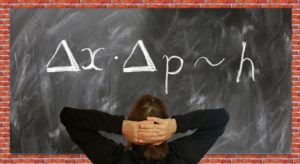One of the things we have noticed as we’ve attended writer’s conferences and writers group meetings, is the confusion surrounding editing. From why do I need an editor, to what does an editor do, to what type of editing do I need?

In this blog series, we’ll attempt to clear the confusion by answering these and other common questions about editing.
So, let’s start with: Why do you need an editor?
*****
Yay! Congratulations! You’ve finished your story. You’ve pored over it, and over it, and over it. You’ve made it absolutely perfect. Or so you think.
But now everyone says you need to get it edited.
Why?
Because a professional editor is a second set of unbiased, educated eyes.
An editor doesn’t know:
- your story or where it takes place
- who your characters are
- what your characters look like, act like, feel, how they behave
- who’s likable and not
- what your scenes and settings look like, feel like, smell like
- what you meant to write
- what word you thought was right
- what your character really meant to say
- why you switched POV or tense
In short, they have no preconceived ideas about your plot, where it’s going and will not read into it what you intended to write.
It’s up to your story and writing to tell them all that.
Finally, they’re also trained to spot and not read over grammatical, punctuation, typographical and other errors.
Simply put, editing helps you perfect your work. It can range from helping you build your story to polishing it or suggesting a complete rewrite.
How much an editor does depends on the status of your work and the type of edit you’ve requested.
Here is a quick overview of the three basic types of editing:
Developmental Editing – helps the author as they develop their manuscript. The editor works with the author providing guidance and feedback by critiquing all areas of the authors manuscript as they develop their story.
Copy or Line Editing – this is the most common type of edit and is performed on the completed manuscript. It is a line by line check of the authors work and can be light, medium or heavy.
Some of the things the editor will look at include:
- Light
- Spelling
- Punctuation
- Grammar
- Typographical errors
- Omitted or repeat words
- Medium
- Consistency
- Sentence construction
- Unnecessary words
- Plot holes
- Style sheet/guide adherence
- Heavy or Full – Suggestions for:
- Cuts
- Additions
- Rewrites
Proofreading – is a final review on a completely edited manuscript to check for errors introduced during edit changes.
Other less common types of edits are: Substantive or Content Edit and Production Edit.
*****

Not sure what edit formula’s right for you?
In Part II we’ll go into a lot more detail for each type of edit to help you select.
*****
Have you used an editor at any stage of your writing? How did they help you?




Hi Bob Thank you for this post. I’m self-published and it’s still so critically important to get your work edited. I’ve used an editor for all my work both fiction and non-fiction and that second set of eyes is so valuable. They pick up things that I would never have thought of and see things I’ve read a million times and still have missed something! You’ve done a great job at explaining what an editor does and the different types of editing which I sometimes get confused about. I look forward to your next post.
Thanks Casey. You’re so right. As you’ll see in the series, self-editing is very important but it’s that second set of eyes that not only catches errors but helps hone your work and makes it more attractive and appealing to your readers. Thank you again for your comments and I hope you enjoy the rest of the series as I try to eliminate the confusion about the different types of editing. In the meantime, Happy Writing!